The MINA News’ Sumatra Bureau conducted an exclusive interview with Professor Mahmoud Hashim Anbar, an expert in Tafsir and Quranic Sciences from the Islamic University of Gaza, at An-Nubuwwah Mosque, Muhajirun, Natar, South Lampung, on Saturday, November 23.
In the interview, Sheikh Anbar emphasized the importance of education as a central pillar in the liberation of Al-Aqsa Mosque. He highlighted how Quran-based education fosters both spiritual and intellectual resilience within society, particularly amid prolonged conflict.
Sheikh Anbar also stressed that the Quran is not only a sacred text but also a source of inspiration and a guide for building moral, social strength, and the struggle for freedom.
Through this interview, Sheikh Anbar called on Muslims worldwide to support the Palestinian cause, particularly in Gaza, through prayers, tangible aid, and efforts to strengthen Islamic education. He asserted that education is key to building a strong, resilient generation capable of continuing the struggle for justice and freedom.
Also Read: The Forty-Four-Days of Glory: Azerbaijan’s Struggle for Justice and Peace
Below is an excerpt from the interview:
MINA: How important is education in the liberation of Al-Aqsa Mosque?
Sheikh Anbar: Education plays a crucial role as one of the strategic efforts in the liberation of Al-Aqsa Mosque. Through education, Muslims can understand the significance of Al-Aqsa as one of the holiest sites with a special status in Islam’s history and theology.
Al-Aqsa is the first qibla of Muslims, the site of the Isra and Mi’raj of Prophet Muhammad SAW, and a blessed area as mentioned in the Quran. By understanding this, education raises awareness about the importance of protecting and liberating Al-Aqsa from occupation.
Also Read: Palestine Solidarity Month: A Collective Movement for Al-Aqsa and Palestine’s Freedom
Moreover, education instills values of struggle inspired by Islamic history. A prime example is the struggle of Salahuddin Al-Ayyubi to free Jerusalem from occupation. Salahuddin emphasized the importance of faith and knowledge in the struggle, selecting soldiers who had memorized the Quran and possessed strong religious understanding. This decision demonstrated that education, especially religious education, forms the foundation that strengthens the moral, spiritual, and intellectual capacities of fighters.
Education not only shapes understanding but also builds awareness among Muslims to unite in defending and fighting for Al-Aqsa. By studying history, Muslims grasp the roots of the issues they face and the strategic steps that can be taken to address them. Education also serves as a tool to instill values of courage, sacrifice, and the spirit of defending the truth, as exemplified by past Islamic fighters.
Therefore, education is the key to forming a generation that not only understands the spiritual values and history of Al-Aqsa but also has the ability to translate that understanding into real action for its liberation. Through directed education based on Islamic values, Muslims can continue to fight, contribute, and pray for the liberation of Al-Aqsa as one of the noble goals in Islamic history.
MINA: What was the state of education in Palestine prior to October 7?
Also Read: Hassan al-Turabi: A Controversial Thinker from Sudan
Sheikh Anbar: Education in Gaza was operating normally before October 7, from kindergarten to university, similar to other regions. Children received basic education, learning to read, write, and study other subjects, while secondary school students engaged with more complex curricula.
Gaza’s universities were home to thousands of students pursuing education in various fields, such as technology, medicine, and social sciences. Despite facing major challenges, the people of Gaza prioritized education as a means to build a better future and face the difficulties they encountered.
MINA: Is there still educational activity after October 7?
Sheikh Anbar: After October 7, Zionist forces launched large-scale attacks that destroyed schools, universities, and all educational facilities in Gaza. As a result, formal education at schools, from kindergarten to secondary levels, was completely halted because the buildings were reduced to rubble. However, university education continued online, with approximately 1,100 students striving to continue their studies amid the difficult situation.
Also Read: Who Exactly is the RSF Group Shaking Sudan?
This attack is part of a strategy to weaken the resistance of the Palestinian people, as the occupiers realize that education is a primary weapon that empowers the people of Gaza and fuels their struggle against occupation.
Despite the extreme circumstances, efforts at basic and secondary education are still being conducted, albeit on a limited scale and no longer within formal systems like madrasahs or regular schools. Children are learning in refugee tents with minimal facilities, just to ensure they do not completely lose access to education. Volunteers and individuals with knowledge have been the driving force behind this emergency education effort.
Amidst limitations, the people of Gaza demonstrate extraordinary determination to continue educating their youth. The learning process in the refugee tents is not only an academic activity but also a way to preserve hope, spirit, and the identity of Gaza’s children. This stands as proof that, although physically destroyed, the spirit to learn and resist oppression remains unshakable. (T/RE1/P2)
Mi’raj News Agency (MINA)
Also Read: The Two-State Solution (Palestine–Israel) in Historical Perspective






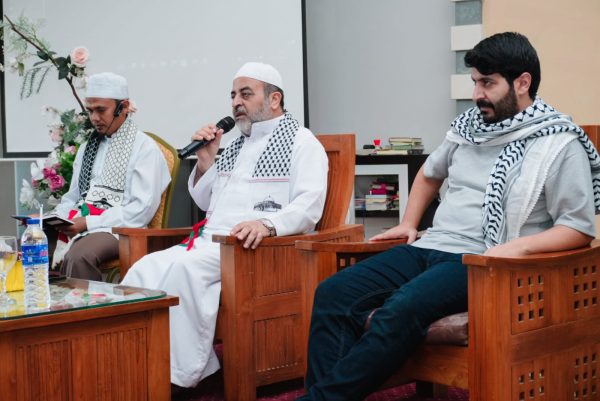


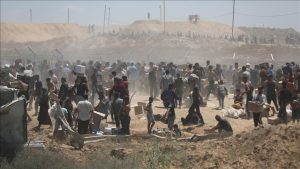
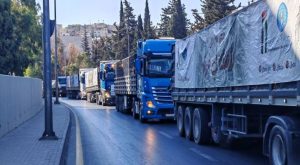
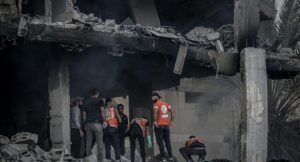


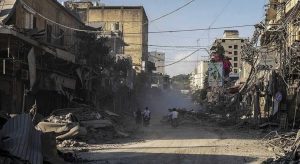
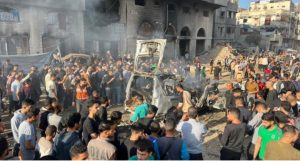
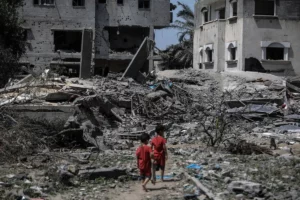
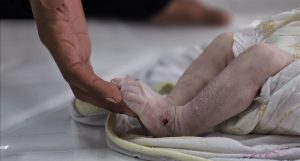
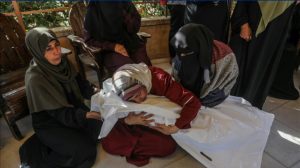
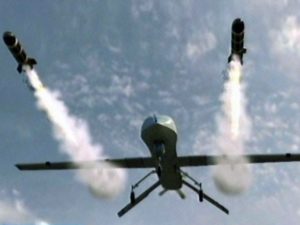
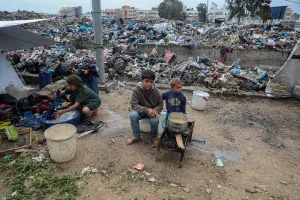













 Mina Indonesia
Mina Indonesia Mina Arabic
Mina Arabic